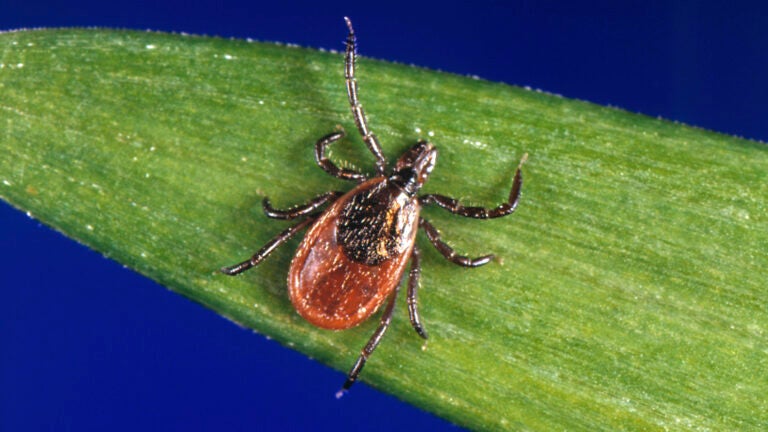Local News
While rare, the rate of the Powassan virus is increasing and can cause severe disease, including inflammation of the brain and spinal cord.

A 1-month-old infant on Martha’s Vineyard contracted a rare but serious tick-borne disease, her family and local health officials said, as tick-borne diseases are on the rise across the state this season.
Powassan virus was detected in a resident of Martha’s Vineyard, local public health officials said Monday. The virus is transmitted by deer ticks within 15 minutes of a bite, and there is no specific treatment, vaccine, or cure.
The local public health announcement comes during one of the largest surges in tick bites in the last five years. In Massachusetts, most of the tick exposure was concentrated in the Berkshires and on Martha’s Vineyard and Nantucket, according to the state’s May 2025 report.
While rare, the rate of Powassan virus is increasing, according to the CDC, and can cause severe disease, including inflammation of the brain and spinal cord, as well as brain swelling, confusion, loss of coordination, difficulty speaking, and seizures.
Between 1 and 2 percent of nymph deer tickets on Martha’s Vineyard are infected, said Sam Telford, a Tufts University professor who researches on the island.
“The virus is present every year in a small percentage of deer ticks; fortunately, severe disease remains very rare,” Telford said in a statement. “This is a similar rate to that seen elsewhere in New England. This suggests that many people who are exposed may successfully fight off the virus without ever knowing they were infected.”
1-month-old Lily, born on June 30, was on a walk with her mom and her older sister on a West Tisbury bike path near her home, her family told the Vineyard Gazette. The infant was first taken to the hospital with a high fever, and doctors eventually determined the source was the tick bite.
She suffered brain damage, according to a GoFundMe created for the family, due to meningitis and encephalitis from the Powassan, which was unknown at the time, an update last week said. The baby was receiving care at Massachusetts General Hospital in Boston.
“Please, please check yourselves, your children and your pets,” Tiffany Sisco said, according to the Gazette. “It was the tiniest nymph tick the size of a needle tip. No rash or bullseye was detected.”
Sisco was sharing updates on her Facebook page, where she said Thursday morning that Lily was stable “and awaiting further tests” in her final public update.
“(We) hope to bring her home soon,” Sisco wrote. “Continued prayers as we navigate our new normal.”
Sign up for the Today newsletter
Get everything you need to know to start your day, delivered right to your inbox every morning.


